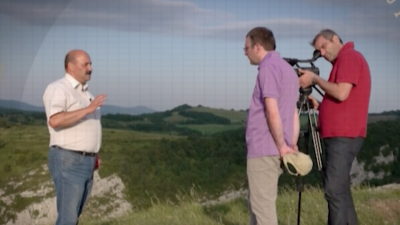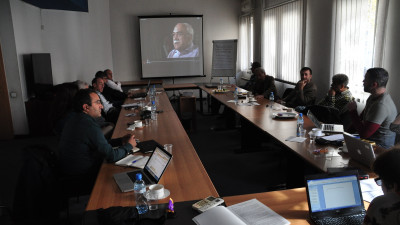2020 marks the 75th anniversaries of VE Day and VJ Day when the Allied nations celebrated victory over Nazi Germany and Japan. Today, as on-going conflicts descend into drawn out endgames, what does it really mean to ‘win’ a war and what challenges are faced when it comes to peacebuilding, and post-conflict healing? These are the questions central to Reimagining Victory, a new digital series that explores the state of war and peace in relation to twenty-first century conflict.

As the COVID-19 pandemic continues to spread rapidly through the highly militarised region of Jammu and Kashmir, the need for sustained communication and collaboration across the Line of Control has become more important than ever. Rather than distracting from the divisions caused by conflict, the pandemic is deepening them. But can a collaborative response to COVID-19 become a tool for peacebuilding in this divided region?

Yesterday the UK announced the merger of the Department for International Development (DFID) with the Foreign and Commonwealth Office. This move presents real risks but also potential opportunities for the UK’s contribution to reducing conflict and supporting peace overseas.
In a letter released today, experts in conflict resolution and human rights, call on the French and Spanish governments to release Basque prisoners who are vulnerable to COVID-19 or are eligible for parole. The letter is signed by over 100 hundred people, including Conciliation Resources’ Executive Director Jonathan Cohen. Read the full statement below.
Working in three contexts - Central African Republic, Myanmar and Nigeria (the hubs) - Smart Peace is implemented by a specialist consortium led by Conciliation Resources, in partnership with International Crisis Group, Centre for Humanitarian Dialogue, The Asia Foundation, ETH Zurich, Behavioural Insights Team and Chatham House. Through combining expertise to ensure a comprehensive and adaptive approach to peacebuilding, Smart Peace aims to see key stakeholders involved in conflict resolution, including communities, better supported to manage change peacefully. This introductory film provides an overview of Smart Peace’s approach and what this means in each of the programme’s hubs.
Today, Chatham House is hosting the first expert roundtable event on Smart Peace online. With the number of violent conflicts increasing, there is a worldwide need to respond more effectively. Smart Peace is a global consortium created to improve peacebuilding in fragile and conflict-affected states.
This roundtable, which was postponed due to COVID-19, is an opportunity for Smart Peace partners to share the Smart Peace concept, approach and objectives, and experiences of the first phases of programme implementation. Smart Peace partners will be joined remotely by UK government officials, representatives from embassies, and other international organisations working on peacebuilding.
The war that broke out in Nagorny Karabakh in September 2020, leaving as many as 7,000 dead and displacing 130,000 people in just 44 days, was another tragic and bloody instalment in the decades-long conflict between Armenians and Azerbaijanis.
Recounting the story of this protracted conflict up to 2016, the 'Parts of a Circle' documentary film trilogy covers the outbreak of war in the dying days of the Soviet Union, the war itself, and the failed attempts to secure peace. The films recount events up to the outbreak of the major escalation known as the ‘4-day war’ in April 2016, after the stalling of negotiations and an accelerating military build-up along the Line of Contact.
Every year, the months of January-April are crowded with traumatic commemorations in both Armenian and Azerbaijani national calendars. Seeing the bitter online exchanges during this time, one could be forgiven for thinking that history should be left alone.
Yet societies affected by violence need an internal dialogue on the violent past. Many conflicts generate complex combinations of victims and perpetrators, necessitating difficult conversations for post-war societies on how they distinguish right and wrong – even under the most extraordinary circumstances imposed by war. This imperative is reflected in the fact that reconciliation is no longer seen in peacebuilding practice as a utopian aspiration or a ‘soft’ add-on. Questioning how its history is transmitted – what is foregrounded and whose voices are omitted – is healthy for any nation. This is all the more relevant in the South Caucasus today as a new generation with no memory of 1990s violence grows up.
Conciliation Resources is joining leading mediation and peace support organisations to establish a range of measures which ensure their work is complementary and collaborative. The following statement of intent has been agreed with the Berghof Foundation, the Carter Center, the Centre for Humanitarian Dialogue, CITpax, CMI, European Institute of Peace, Forward Thinking, Inter Mediate, and Sant'egidio.
As COVID-19 takes hold in the UK and elsewhere, we’re being asked to put our faith in our government, our health officials and security services. To put our lives on hold, to stay at home, and to trust that this is the best way to slow the spread of the disease. It’s hard to overstate how important this trust is, because in West Africa we experienced what happens when this trust isn’t there – and just how vital local peacebuilders are for building a bridge between communities and government institutions.










